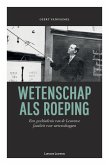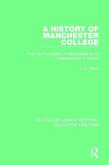
Broschiertes Buch
An Urban Walking Guide through 600 Years of Science
14. November 2024
Leuven University Press

19,95 €
Sofort per Download lieferbar
Broschiertes Buch
The Rise and Fall of Modern Mathematics in Belgium
1st edition 2019
3. Dezember 2020
Springer / Springer International Publishing / Springer, Berlin
978-3-030-20601-7
| Gebundenes Buch | 113,99 € | |
| eBook, PDF | 105,95 € |
Gebundenes Buch
The Rise and Fall of Modern Mathematics in Belgium
1st edition 2019
19. Dezember 2019
Springer / Springer International Publishing / Springer, Berlin
978-3-030-20598-0
Ähnliche Artikel

Broschiertes Buch
From its Foundation in Manchester to its Establishment in Oxford
17. April 2018
Routledge

20,99 €
Versandfertig in 1-2 Wochen
Broschiertes Buch
19. August 2017
Trieste Publishing

Broschiertes Buch
1. November 2013
Lilliput Press

Broschiertes Buch
10. November 2007
Kessinger Publishing, LLC

24,99 €
Versandfertig in 1-2 Wochen
Broschiertes Buch
24. November 2019
Xlibris US

Broschiertes Buch
24. Februar 2015
BiblioLife


Broschiertes Buch
22. Oktober 2022
Touchladybirdlucky Studios

17,99 €
Versandfertig in 1-2 Wochen
Broschiertes Buch
As Told In Contemporary Records On Occasion Of Its Tercentenary (1892)
10. Mai 2009
Kessinger Publishing, LLC

20,99 €
Versandfertig in über 4 Wochen
Ähnlichkeitssuche: Fact®Finder von OMIKRON
